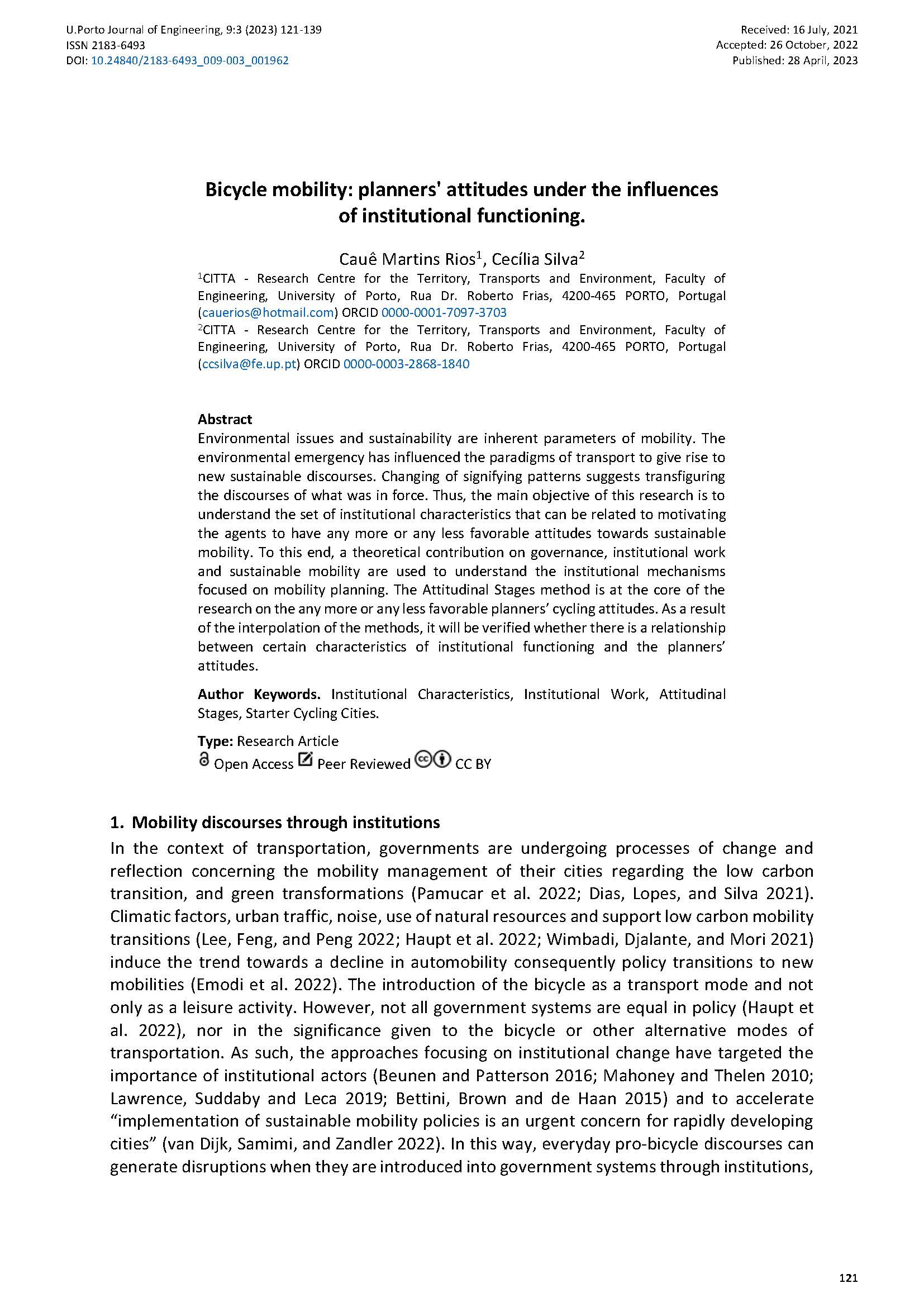Bicycle mobility: planners' attitudes under the influences of institutional functioning
Main Article Content
Abstract
Environmental issues and sustainability are inherent parameters of mobility. The environmental emergency has influenced the paradigms of transport to give rise to new sustainable discourses. Changing of signifying patterns suggests transfiguring the discourses of what was in force. Thus, the main objective of this research is to understand the set of institutional characteristics that can be related to motivate the agents to have a more or less favorable attitudinal stages towards the sustainable mobility. To this end, a theoretical contribution on governance, institutional work and sustainable mobility is used to understand the institutional mechanisms focused on mobility planning. The Attitudinal Stages method is at the core of the research on the more or less favorable planners’ cycling attitudes. As a result of the interpolation of the methods, it will be verify whether there is a relationship between certain characteristics of institutional functioning and the planners attitudes.
Downloads
Article Details

This work is licensed under a Creative Commons Attribution 4.0 International License.
Authors who publish with this journal agree to the following terms:
- Authors retain copyright and grant the journal right of first publication with the work simultaneously licensed under a Creative Commons Attribution License that allows others to share the work with an acknowledgement of the work's authorship and initial publication in this journal.
- Authors grant the journal the rights to provide the article in all forms and media so the article can be used on the latest technology even after publication and ensure its long-term preservation.
- Authors are able to enter into separate, additional contractual arrangements for the non-exclusive distribution of the journal's published version of the work (e.g., post it to an institutional repository or publish it in a book), with an acknowledgement of its initial publication in this journal.
- Authors are permitted and encouraged to post their work online (e.g., in institutional repositories or on their website) prior to and during the submission process, as it can lead to productive exchanges, as well as earlier and greater citation of published work (See The Effect of Open Access).

